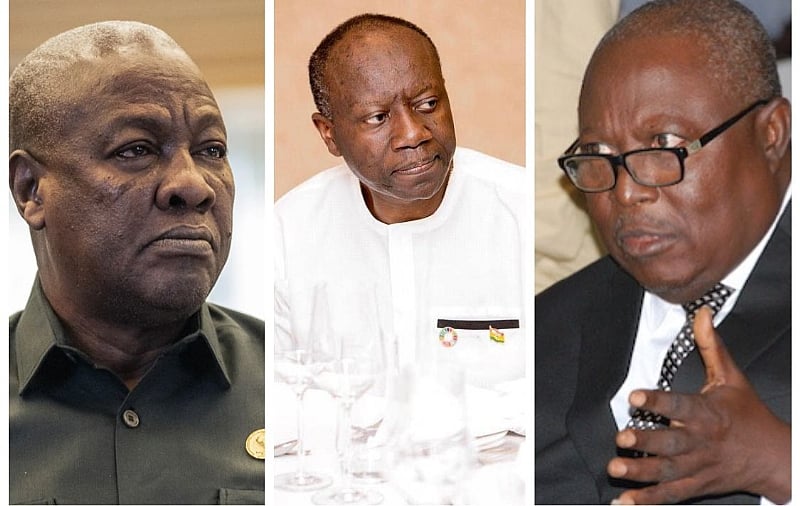Martin Amidu, the former Special Prosecutor of Ghana, has leveled serious accusations against the Office of the Special Prosecutor (OSP) and the Presidency, alleging a politically motivated persecution of Ken Ofori-Atta, the former Finance Minister. Amidu contends that the OSP’s investigation into Ofori-Atta, including the search of his residence and the subsequent declaration of him as a fugitive, is not an independent action but rather a carefully orchestrated operation by the government, disguised as an impartial investigation. He bases his claims on what he perceives as inconsistencies and contradictions in the OSP’s actions and statements, particularly in light of recent revelations by Deputy Attorney-General, Justice Srem-Sai. These revelations, according to Amidu, expose the coordinated nature of the investigation and implicate the Presidency in a scheme to target Ofori-Atta.
The controversy surrounding Ofori-Atta began with the OSP’s attempts to question him regarding alleged corruption-related offenses, including matters related to the National Cathedral project and the SML scandal. Ofori-Atta, who was abroad receiving medical treatment at the time, failed to appear before the OSP on multiple occasions, leading to his being declared a wanted person in February and again in June. The situation escalated further with the OSP’s request for an INTERPOL Red Notice for Ofori-Atta’s arrest, citing suspected abuse of public office for profit. However, Amidu argues that these actions are not based on genuine pursuit of justice but rather on a predetermined political agenda.
Amidu points to the Deputy Attorney-General’s statement that the government has initiated the process to extradite Ofori-Atta as clear evidence of the Presidency’s involvement in the investigation. He interprets this statement as confirmation that the OSP is not acting independently but is instead taking directions from the government. Amidu criticizes this alleged interference, arguing that it undermines the OSP’s credibility and independence, turning it into a tool for political persecution. He warns the Mahama-led administration against engaging in such practices, reminding them of their past criticisms of similar actions by previous administrations. Amidu emphasizes that such conduct, even if disguised, will eventually come to light.
The core of Amidu’s argument rests on the belief that the OSP is being used as a political weapon against Ofori-Atta. He highlights what he perceives as a coordinated effort to discredit and punish the former Finance Minister, using the OSP as a façade of legality. Amidu argues that the OSP’s actions, particularly the declaration of Ofori-Atta as a fugitive and the request for an INTERPOL Red Notice, are disproportionate to the alleged offenses and are intended to exert pressure on him. He contends that the timing of these actions, coinciding with Ofori-Atta’s absence from the country for medical treatment, further supports his claim of a politically motivated persecution.
Amidu’s accusations raise serious concerns about the independence and impartiality of the OSP. If his claims are true, they suggest a deeply troubling manipulation of the justice system for political ends. Such actions undermine the rule of law and erode public trust in the institutions designed to uphold it. The independence of institutions like the OSP is crucial for ensuring accountability and preventing the selective application of justice. Amidu’s allegations underscore the importance of safeguarding the integrity of these institutions and preventing them from being used as instruments of political vendetta.
The controversy surrounding the investigation of Ken Ofori-Atta highlights the complex interplay of politics and law enforcement in Ghana. Amidu’s accusations paint a picture of a government using the OSP to pursue a political agenda, raising questions about the fairness and objectivity of the process. The ongoing investigation and the ensuing debate will undoubtedly have significant implications for the political landscape of Ghana and the future of the OSP as an independent institution. It remains to be seen how the government will respond to these allegations and whether the OSP can maintain its credibility in the face of such serious accusations.


